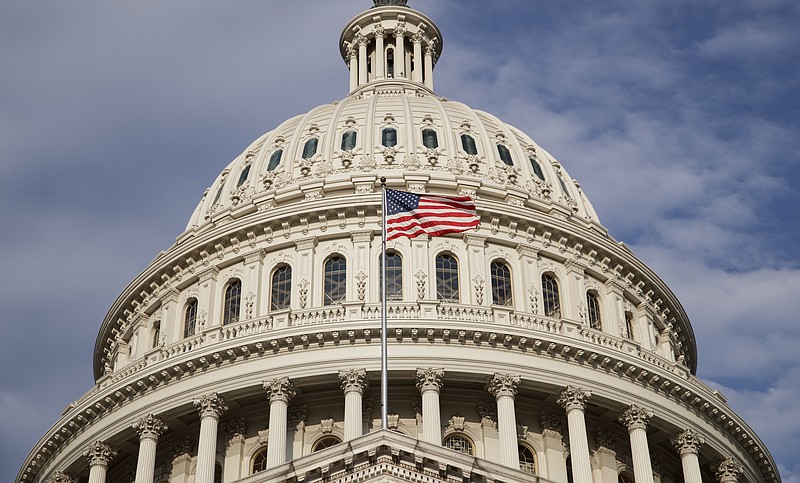Congress has become a lot like the adage about the National Basketball Association: Nobody cares until the playoffs.
For Congress, the playoffs are the last month of the year - less than that if you include its Christmas break. In the next relative month of business, our national lawmakers must avoid a government shutdown, determine whether spending caps in place will be raised, pass leftover spending bills, vote on tax cuts legislation, figure out whether to continue protecting illegal immigrant children and decide whether President Donald Trump will get any money to build the wall he has promised will curtail illegal immigration along the country's Southern border.
While it's become an all-too-familiar scenario in recent years for major congressional business to be pushed to December, Republicans will call it a December to remember if they don't have some marked successes next month.
Voters, most of whom don't have any idea how congressional business is conducted, re-elected a Republican House and a Republican Senate in 2016 and in one of the biggest presidential surprises in the nation's history elected a Republican president.
With that triumvirate, they expected action - the passage of legislation that voided the excesses of the previous eight years and set the country on a moderately conservative path that matched its individual citizens.
The problem is congressional moderates of both the Democratic and Republican parties have all but disappeared, so legislation to achieve any of the voters' moderate expectations is doubly hard to get.
Without any successes, though, Republican voters will have three choices in 2018, when mid-term elections are held. They can keep electing the same representatives, which doesn't reflect their anger, and hope they'll see their most-favored legislation pass some day. They can stay home on election day, which ostensibly absolves them of blame but elects Democrats and ensures what they want will never become law. Or they can vote for Democrats, which assuages their anger but also certifies they'll never get what they want.
Democrats, other than being the party out of power and therefore in a better position to point a finger, have little going for them. They've spent a year opposing everything Trump stands for or wants, but have done little else. No one but Democrats, at this point, is clamoring for a return to Democratic rule.
That should make the next month ripe for compromise, trade-offs and the desire to pass legislation helpful to the American people.
Trump and congressional leaders are supposed to meet today to see what can be done.
The spending bill currently keeping the nation afloat expires Dec. 8, so a temporary bill could give negotiators until later in the "playoffs" to concoct a longer-term plan.
If that plan includes tax cuts, an already passed House bill and a yet-to-be-voted-on Senate bill will need to be rectified. Republicans who want such a bill will have to consider the thinking of deficit hawks like Sen. Bob Corker, R-Tenn., who want tax reform but do not want to see a large jump in the deficit and debt, and other Republicans, who want to deliver on a large tax cut.
Surely, there are steps that could bring the factions together: fewer tax cuts on the wealthy? smaller tax cuts overall? a corporate tax cut only?
Meanwhile, Democrats, who cared not a whit about debt for the past eight years, and their national media parrots are pretending to be outraged Republicans would consider raising the debt with tax cuts.
And then there's this:
Andrew Tisch, co-founder of the political reform group No Labels and vice chairman of the U.S. Global Leadership Coalition, believes Congress should go out on a limb and combine tax reform with infrastructure investment.
"So, what's standing in the way of this deal happening?" he wrote in a commentary for FoxNews.com. "Nothing, other than bad habits and blind partisanship."
Trump had both on his presidential agenda, Tisch said. Such a deal was nearly struck in 2015 between House Speaker Paul Ryan, R.-Wis., and now-Senate Minority Leader Chuck Schumer, D-N.Y. And tax reform and infrastructure investment recently drew 89 percent and 84 percent support in a Harvard-Harris poll, he added.
Such a mammoth deal would require the cooperation between Republicans and Democrats. Can we dare to believe such cooperation is possible? Can we imagine disparate Republicans even coming together on a tax bill? Can we hope Democrats can put aside their Trump blindness to see their way to compromise legislation?
Or will we continue to give succeeding generations the idea that government is broken - irretrievably, irrevocably broken?
We should know by the final round of the congressional "playoffs."
